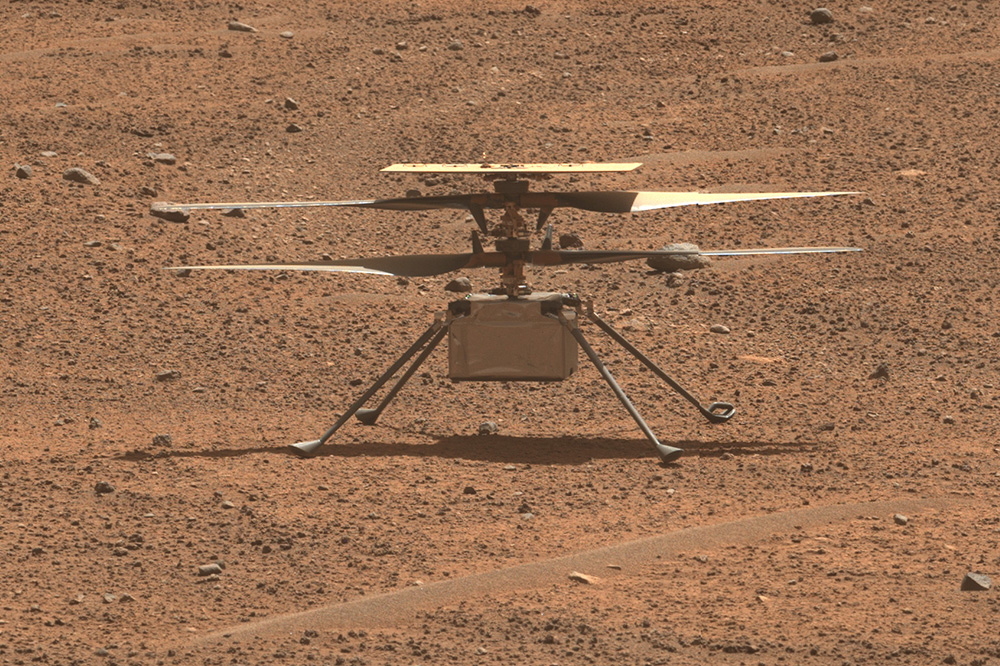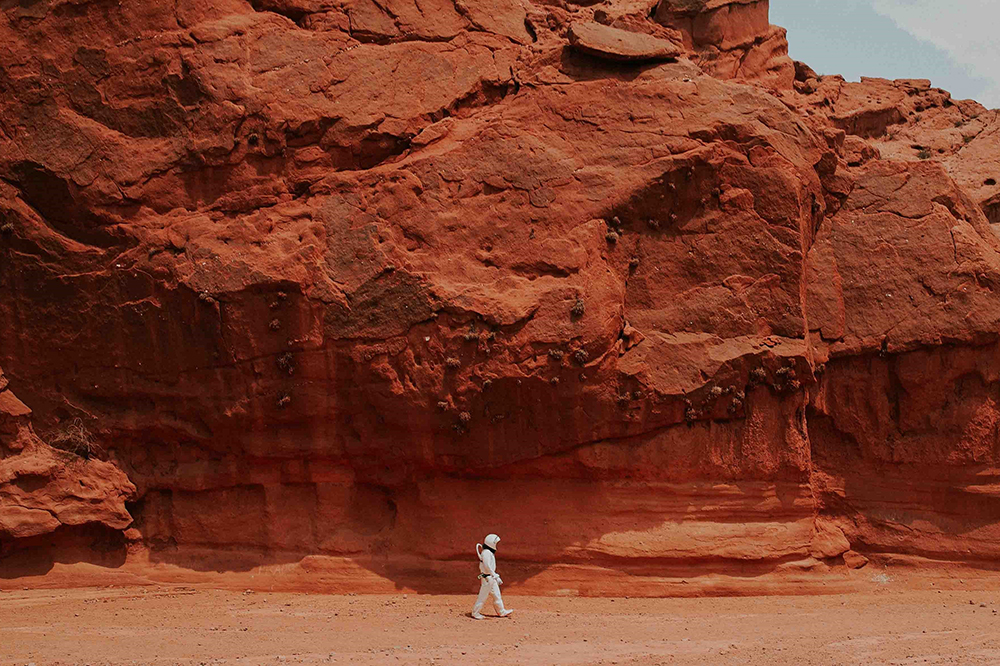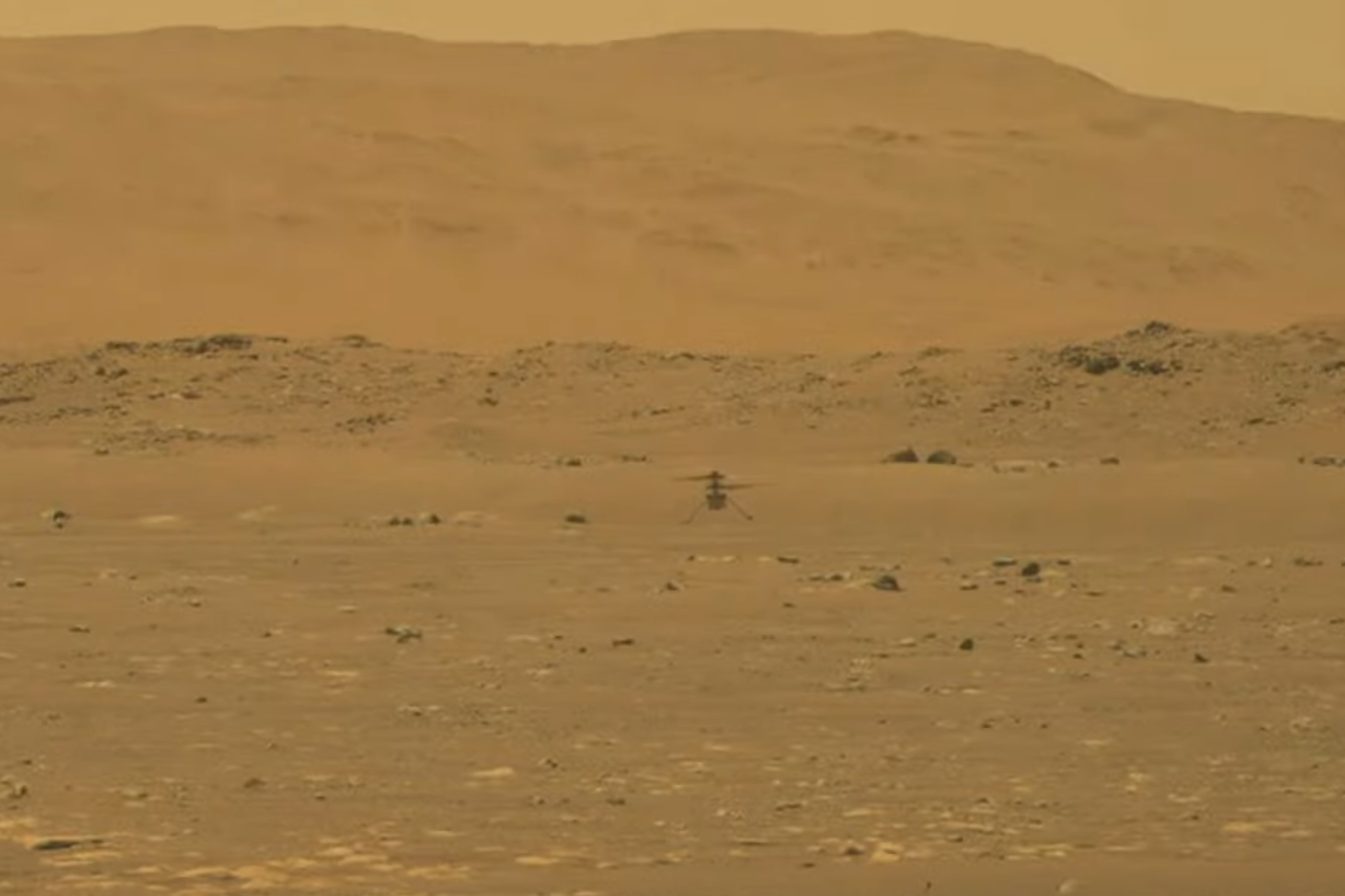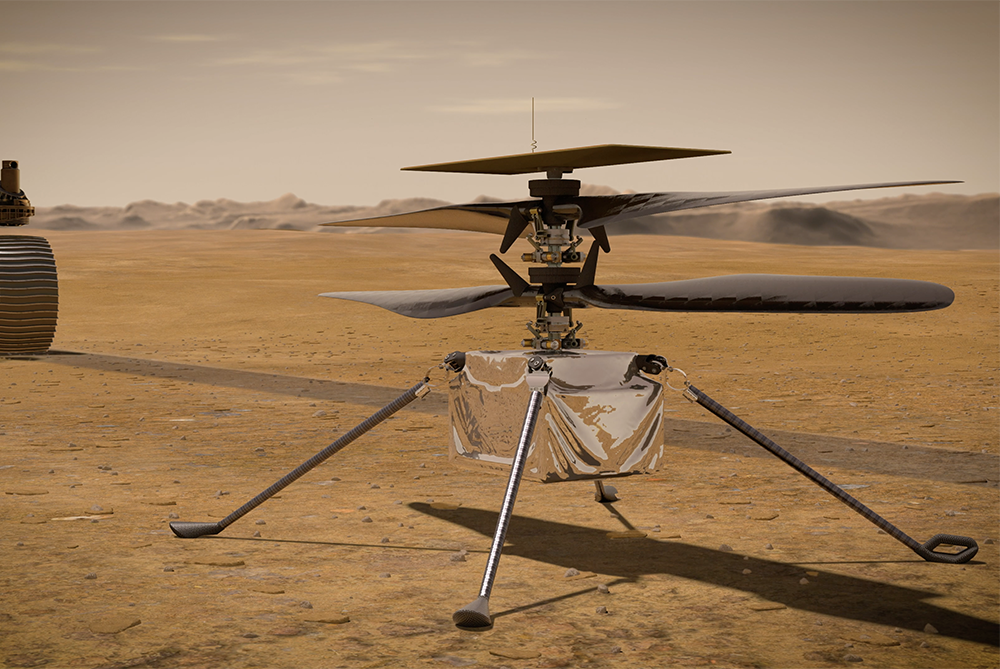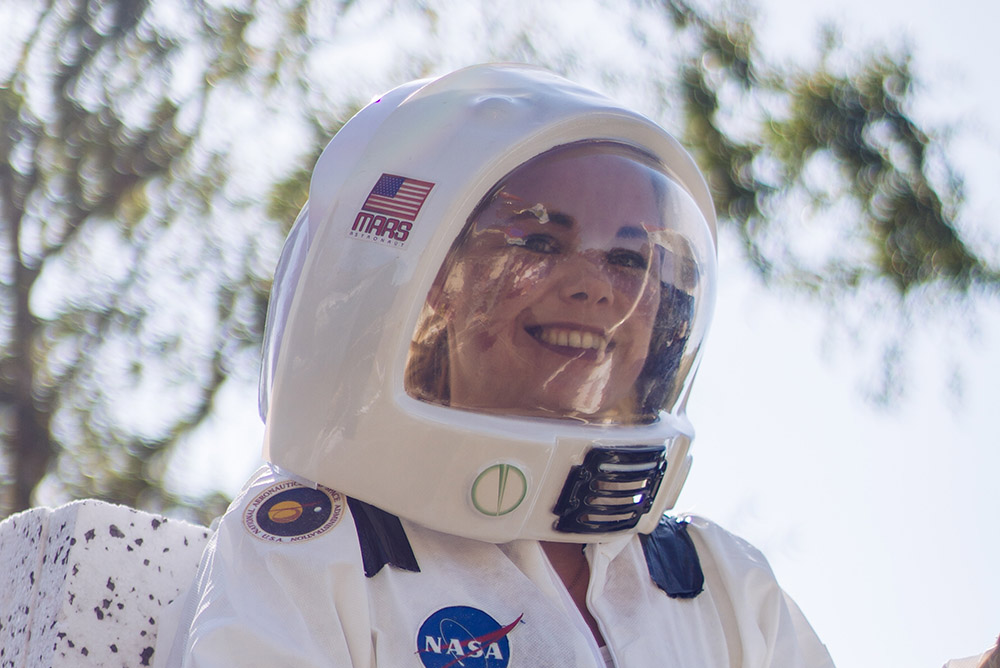On 19 April 2021, Ingenuity successfully performed an experiment on Mars (Photo: NASA). The little helicopter flew vertically into the air, took a selfie with its shadow, and landed safely back on the ground. There are many expectations and aspirations associated with the red planet. Its surface is currently being explored in an unprecedented way. In a few years, humans are expected to travel to Mars. According to Digital Trends, Ingenuity arrived as a technology demonstration, “with the team keen to see if such a contraption could become the first to achieve powered, controlled flight on another planet” (Digital Trends, 26 September 2023). The platform reported on September 26, 2023: “Just a week after setting a new altitude record on Mars, NASA’s impressive Ingenuity helicopter has just flown faster than ever before, reaching a speed of 17.9 mph (8 meters per second) during its 60th flight. Its previous record was 15 mph (6.5 m/s) in a flight earlier this year.” (Digital Trends, 26 September 2023) It can already be said that the deployment of the small helicopter on Mars is a complete success.
Paper on the SPACE THEA Project
The paper “The SPACE THEA Project” by Martin Spathelf and Oliver Bendel was accepted at the AAAI 2022 Spring Symposia (Stanford University). The two authors will present it at the end of March 2022 at the symposium “How Fair is Fair? Achieving Wellbeing AI”. From the abstract: “In some situations, no professional human contact can be available. Accordingly, one remains alone with one’s problems and fears. A manned Mars flight is certainly such a situation. A voice assistant that shows empathy and assists the astronauts could be a solution. In the SPACE THEA project, a prototype with such capabilities was developed using Google Assistant and Dialogflow Essentials. The voice assistant has a personality based on characteristics such as functional intelligence, sincerity, creativity, and emotional intelligence. It proves itself in seven different scenarios designed to represent the daily lives of astronauts, addressing operational crises and human problems. The paper describes the seven scenarios in detail, and lists technical and conceptual foundations of the voice assistant. Finally, the most important results are stated and the chapters are summarized.” More information about the AAAI 2022 Spring Symposia is available here.
Meet SPACE THEA
SPACE THEA was developd by Martin Spathelf at the School of Business FHNW from April to August 2021. The client and supervisor was Prof. Dr. Oliver Bendel. The voice assistant is supposed to show empathy and emotions towards astronauts on a Mars flight. Technically, it is based on Google Assistant and Dialogflow. The programmer chose a female voice with Canadian English. SPACE THEA’s personality includes functional and emotional intelligence, honesty, and creativity. She follows a moral principle: to maximize the benefit of the passengers of the spacecraft. The prototype was implemented for the following scenarios: conduct general conversations; help the user find a light switch; assist the astronaut when a thruster fails; greet and cheer up in the morning; fend off an insult for no reason; stand by a lonely astronaut; learn about the voice assistant. A video on the latter scenario is available here. Oliver Bendel has been researching conversational agents for 20 years. With his teams, he has developed 20 concepts and artifacts of machine ethics and social robotics since 2012.
One Small Flight for Ingenuity
“That’s one small flight for Ingenuity – one giant journey for mankind.” This can be said after the successful experiment on 19 April 2021 with the tiny helicopter on Mars (photo: screenshot from NASA livestream). Ingenuity flew vertically into the air, took a selfie with its shadow, and landed safely back on the ground. The red planet is associated with many expectations and aspirations. At the moment, the surface is being explored in an unprecedented way. In a few years, humans are expected to travel to Mars. In doing so, they will also need advice and support. Because the personnel on Earth are far away, a voice assistant is a possible solution. SPACE THEA is a voicebot that shows empathy (but doesn’t have it, of course). Like GOODBOT and BESTBOT, she recognizes user problems – but unlike those chatbots, she has a voice. SPACE THEA will be developed until August 2021 under the supervision of Prof. Dr. Oliver Bendel at the School of Business FHNW. The project aims to cover several scenarios on the flight to Mars. However, a voicebot could also be useful on the planet itself, for example to control a tiny helicopter.
Ingenuity on Mars
The Perseverance rover, which is on its way to Mars, is carrying a drone called Ingenuity (photo/concept: NASA). According to NASA, it is a technology demonstration to test powered flight on another world for the first time. “A series of flight tests will be performed over a 30-Martian-day experimental window that will begin sometime in the spring of 2021. For the very first flight, the helicopter will take off a few feet from the ground, hover in the air for about 20 to 30 seconds, and land. That will be a major milestone: the very first powered flight in the extremely thin atmosphere of Mars! After that, the team will attempt additional experimental flights of incrementally farther distance and greater altitude.” (Website NASA) After the drone has completed its technology demonstration, the rover will continue its scientific mission. Manned and unmanned flights to Mars will bring us several innovations, including novel chatbots and voicebots.
SPACE THEA
Space travel includes travel and transport to, through and from space for civil or military purposes. The take-off on earth is usually done with a launch vehicle. The spaceship, like the lander, is manned or unmanned. The target can be the orbit of a celestial body, a satellite, planet or comet. Man has been to the moon several times, now man wants to go to Mars. The astronaut will not greet the robots that are already there as if he or she had been lonely for months. For on the spaceship he or she had been in the best of company. SPACE THEA spoke to him or her every day. When she noticed that he or she had problems, she changed her tone of voice, the voice became softer and happier, and what she said gave the astronaut hope again. How SPACE THEA really sounds and what she should say is the subject of a research project that will start in spring 2021 at the School of Business FHNW. Under the supervision of Prof. Dr. Oliver Bendel, a student is developing a voicebot that shows empathy towards an astronaut. The scenario is a proposal that can also be rejected. Maybe in these times it is more important to have a virtual assistant for crises and catastrophes in case one is in isolation or quarantine. However, the project in the fields of social robotics and machine ethics is entitled “THE EMPATHIC ASSISTANT IN SPACE (SPACE THEA)”. The results – including the prototype – will be available by the end of 2021.
